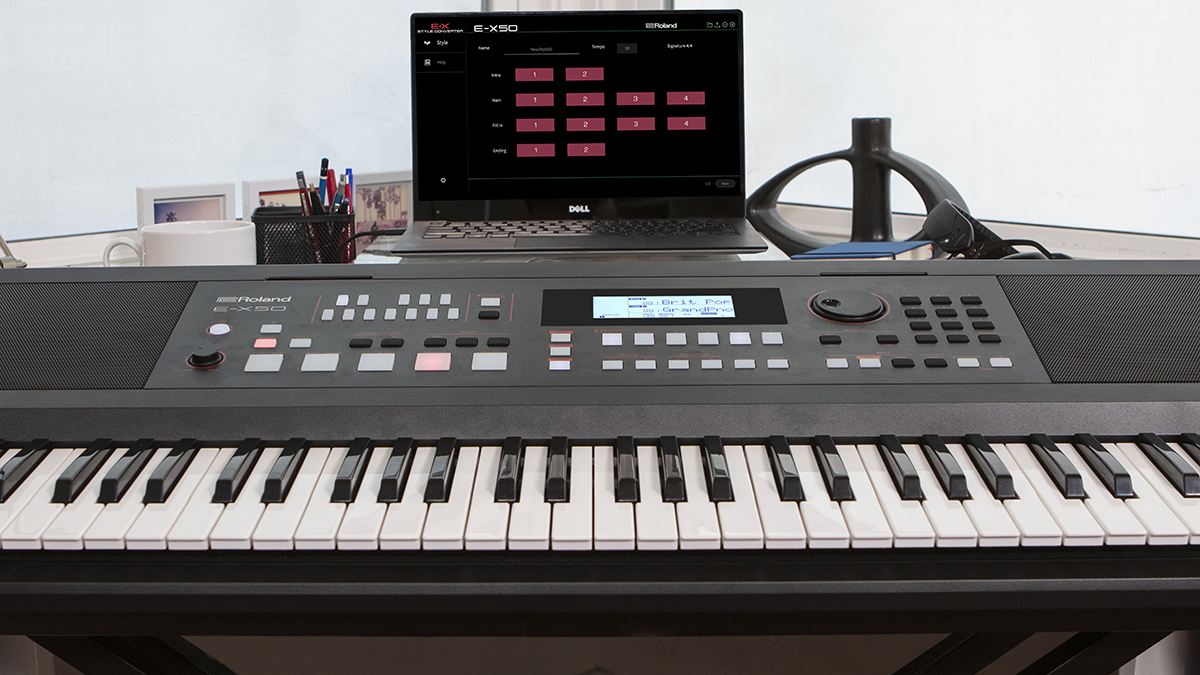Roland’s new E-X50 arranger keyboard is built for entertaining, whether you’re at home or on stage
“Premium” acoustic pianos, auto-accompaniment features and more
Want all the hottest music and gear news, reviews, deals, features and more, direct to your inbox? Sign up here.
You are now subscribed
Your newsletter sign-up was successful
• GEAR EXPO SUMMER 2022: all the latest gear from NAMM and beyond
Described by Roland as both an arranger and entertainment keyboard, the new E-X50 could be just the thing to put the fun back into your playing and performing. It’s designed to be used both in the home and on stage and, as well as a range of “high-quality sounds,” also includes accompaniment features, a mic input and Bluetooth audio.
The E-X50 has a built-in stereo speaker system, so you’re good to start beguiling your audience without any other gear. Roland says that it’s put its premium acoustic pianos into the instrument, and you also get electric pianos, organs, guitars, orchestral instruments, synths and more.
The auto-accompaniment features work in the traditional way - you control them with your left hand while playing melodies with your right. There are 300 preset styles that cover rock, pop, jazz, ballads, dance music and other genres.
You have a certain amount of flexibility with these accompaniments, too. If you’re a beginner, you’ll appreciate Auto Bass Chord mode, which enables you to control your arrangements with one or two fingers. Whole mode, meanwhile, is designed for more advanced players, and lets you play full left-hand chords.
If you want to sing along, you can apply effects to the mic input, while stereo outputs enable you to connect the E-X50 to an external audio system if you need more power. USB ports enable computer connectivity and flash drive support so that you back up sound setups and recordings.
If the pre-loaded styles aren’t to your taste, you can add and upload your own to the E-X50 via the Style Converter software or download new ones from Roland Cloud. Scales, tuning and other parameters can be adjusted, too.
Want all the hottest music and gear news, reviews, deals, features and more, direct to your inbox? Sign up here.
The E-X50 arranger keyboard will be available in August priced at $400. Find out more on the Roland website.


I’m the Deputy Editor of MusicRadar, having worked on the site since its launch in 2007. I previously spent eight years working on our sister magazine, Computer Music. I’ve been playing the piano, gigging in bands and failing to finish tracks at home for more than 30 years, 24 of which I’ve also spent writing about music and the ever-changing technology used to make it.